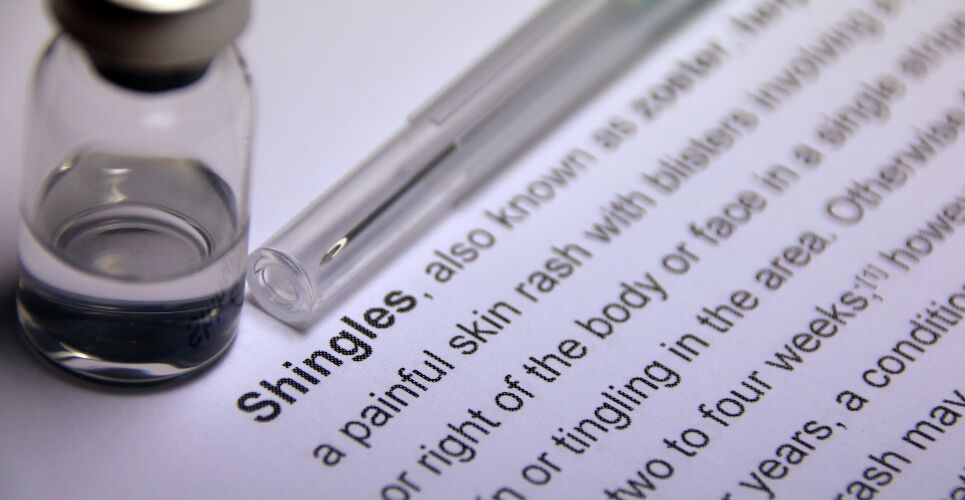The shingles vaccine that has been used in the NHS since last year is associated with a reduced risk of dementia, researchers have reported.
A study of more than 200,000 adults before and after the US switched from Zostavax to the Shingrix vaccine found at least a 17% reduction in dementia diagnoses.
The team from the University of Oxford also found a 23-27% lower risk of dementia in people who had been given Shingrix was compared to those who had not had Shingrix but had other vaccinations such as flu and tetanus.
While the benefit was seen in everyone, the reduced dementia risk appeared to be greater in women, they reported in the journal Nature Medicine.
It is not the first time studies have suggested a link between a shingles vaccine and the risk of dementia, but the switch between Zostavax, which was a live vaccine, and Shingrix, which is a recombinant version, in the US in 2017 allowed for a natural experiment to study the association.
The researchers looked at the six years before the vaccine change and six years afterwards. Specifically, they were measuring diagnosis-free time, which equated to 164 days longer without a diagnosis of dementia in those who had the newer vaccine.
Dr Maxime Taquet, NIHR academic clinical lecturer in the Department of Psychiatry at the University of Oxford, who led the study said: ‘The size and nature of this study makes these findings convincing, and should motivate further research. They support the hypothesis that vaccination against shingles might prevent dementia. If validated in clinical trials, these findings could have significant implications for older adults, health services, and public health.‘
Co-author Professor John Todd, professor of precision medicine at the University of Oxford’s Nuffield Department of Medicine, said a key question was now how the vaccine produces this apparent benefit.
‘One possibility is that infection with the herpes zoster virus might increase the risk of dementia, and therefore by inhibiting the virus the vaccine could reduce this risk,‘ he said.
‘Alternatively, the vaccine also contains chemicals which might have separate beneficial effects on brain health.’
More studies are now needed to unpick the mechanisms behind the ‘intriguing’ findings, the researchers said.
Not enough is known at this point to suggest that the Shingrix vaccine should be used to help prevent or delay dementia onset, they added.
As of September 2023, Shingrix is being offered by the NHS to all elderly people and certain other high-risk groups. It was recommended by the Joint Committee on Vaccination and Immunisation alongside expansion of the age of eligibility.
From 2028 the vaccine will be offered to those turning 65 and 60, the letter from NHS England and the UK Health Security Agency set out at the time.
In addition, immunocompromised individuals will now be eligible from the age of 50 years for vaccination with Shingrix.
Experts said the results from the well-conducted study were convincing after previous conflicting findings.
Professor Rob Howard, professor of old age psychiatry at University College London, said: ‘Although previous studies have suggested immunisation against herpes viruses might protect against dementia, particularly in women, this took advantage of a change in vaccine type to overcome the many confounding variables that may have provided alternative explanations.
‘The next question is how does vaccination exert this dementia protection effect? Is it through suppression of virus, or is the induced immune response targeting a step in the molecular pathology of Alzheimer’s disease?’
Previous research has suggested that infection with herpes zoster appears to be associated with a longer term higher risk of developing both a stroke and coronary heart disease.
A version of this article was originally published by our sister publication Pulse.

